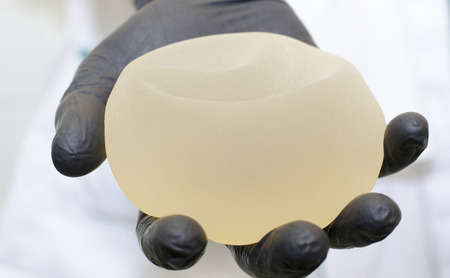Breast Implant Ruptures

Whether they contain silicon gel or saline, breast implants can rupture. However, recently-filed lawsuits have alleged that leaking silicone from ruptured implants can cause serious and debilitating complications.
Legal Help for Victims of Ruptured Breast Implants
Bernstein Liebhard LLP is offering legal assistance to women who were diagnosed with silicone toxicity or another possible breast implant illnesses following rupture of silicone gel implants. To learn if you might have a case for compensation, please call (888) 994-5118 to talk with a member of our legal team today.
What Happens When a Breast Implant Ruptures?
A rupture occurs when a tear or hole develops in a breast implant. Possible causes of breast implant ruptures include:
- Capsular contracture
- Compression during a mammogram
- Damage by surgical instruments
- Damage to the breast during biopsies, other procedures
- Implant aging
- Overfilling or underfilling of saline-filled breast implants
- Trauma or intense physical pressure
- Placement through a non-approved incision site, such as the belly button
- Excessive handling during surgery
In most cases, saline implant ruptures are immediately noticeable, as the liquid will leak from the implant immediately or over the course of just a few days. A silicone gel rupture may be noticeable if it occurs outside the capsule, resulting in:
- Decrease in breast size
- Change in breast implant shape
- Hard lumps over the implant or chest area
- Uneven appearance of the breasts
- Pain or tenderness
- Tingling
- Swelling,
- Numbness
- Burning, or changes in sensation
Patients with silicone breast implants may also experience a “silent rupture,” in which the gel remains inside the shell or the scar tissue surrounding the breast. A silent rupture is not noticeable to the patient, and is usually not detectable during a physical exam. For this reason, the U.S. Food & Drug Administration (FDA) recommends that women with silicone breast implants undergo an MRI at 3 years post-implantation and every 2 years after that to screen for rupture.
When a silent rupture occurs, silicone can slowly leak or ooze from the capsule surrounding the breast. The gel can then migrate to other parts of the body, causing lumps to form in the chest wall, armpit or arm. Removing silicone gel that has traveled to other parts of the body is often difficult, if not impossible.
Do Silicone Ruptures Cause Breast Implant Illness?
In the 1980s and 1990s, tens of thousands of women filed lawsuits for breast implant illness, including autoimmune and connective tissue disorders, allegedly associated with silicone implants. Medical device companies spent billions of dollars to settle these claims, and the overwhelming litigation resulted in the bankruptcy of Dow Corning. In 1992, the FDA imposed a virtual ban on silicone breast implants that lasted for 14 years. Those restrictions were lifted in 2006, despite lingering safety concerns. Since then, the agency has approved five silicone gel implants for use in breast augmentation:
- Allergan Natrelle
- Allergan Natrelle 410 Highly Cohesive Anatomically Shaped Silicone-Filled Breast Implants
- Mentor MemoryGel
- Mentor MemoryShape
- Sientra’s Silicone Gel Breast Implants
Since their re-launch, silicone implants have become the preferred choice for women undergoing breast augmentation or reconstruction. However, several recent lawsuits have renewed concerns about their safety. In September 2016, for example, a Seattle woman filed suit in California federal court after she was diagnosed with silicone toxicity, allegedly due to defective MemoryGel implants. Her complaint charges that chemicals used in their manufacture were able to bleed from the implants, resulting in high levels of heavy metals in her blood stream and other debilitating complications. In January 2017, a second woman filed suit in Los Angeles Superior Court, charging that leaking silicone from her MemoryGel implants had resulted in muscle pain, nausea, extreme fatigue, skin rashes other problems.
Contact an Attorney Today
Bernstein Liebhard LLP is offering free legal review to women experiencing debilitating side effects and complications allegedly related to silicone breast implant ruptures. To get in touch with an attorney today, please call (888) 994-5118.
- PBS Frontline (N.D.) “Chronology of Silicone Breast Implants” http://www.pbs.org/wgbh/pages/frontline/implants/cron.html
- FDA (2013) “Risks ofBreast Implants” http://www.fda.gov/MedicalDevices/ProductsandMedicalProcedures/ImplantsandProsthetics/BreastImplants/ucm064106.htm#Rupture_
- Bloomberg News (2017) “Johnson & Johnson Unit Sued Over Leaking Breast Implants” https://www.bloomberg.com/news/articles/2017-02-03/johnson-johnson-unit-sued-over-leaking-breast-implants
Get the latest news and litigation updates about this case by following us on Facebook. Click the "Like" button below.
Follow Us


